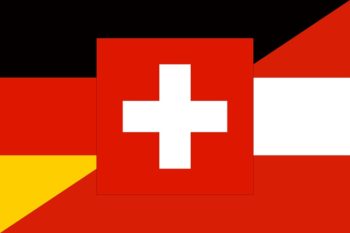Colloquial Spanish Course – Romantic Encounters in Spanish Posted by Laura & Adam on Sep 14, 2020

Learn and practice colloquial vocabulary and phrases related to discussing romantic encounters in Spanish and then see if you can follow a short audio conversation in Spanish.
Colloquial Spanish Course – Romance in Spanish Posted by Laura & Adam on Sep 8, 2020

Learn and practice colloquial vocabulary and phrases related to discussing romance in Spanish and then see if you can follow a short audio conversation in Spanish.
Colloquial Spanish Course – Different ways to say I love you in Spanish Posted by Laura & Adam on Sep 1, 2020

Learn and practice colloquial vocabulary and phrases related to the different ways to say I love you in Spanish and then see if you can follow a short audio conversation in Spanish.
Spanish Words of Foreign Origin: Germanismos (Part 2) Posted by Anais on Aug 31, 2020

Let’s continue with the Spanish words of Germanic origin: Falda: From Old Hogh German faldan, which meant “to fold”, it became the noun for “skirt” in today’s Spanish. Fresco: From Germanic frisk, meaning “fresh”. One may notice the Germanic adjective ended up appearing in many languages, like French (frais), Portuguese (fresco) or Italian (fresco). Guarecer…
Partying in Latin America: Las Fiestas Posted by sasha on Aug 27, 2020

We’re keeping things fun here on the Spanish blog this month. Be sure to check out the posts about partying in Spanish and Carnaval if you missed them. Hoy voy a escribir sobre las fiestas en América Latina (Today I’m going to write about the parties in Latin America). In my travels across the region…
Colloquial Spanish Course – Love in Spanish Posted by Laura & Adam on Aug 24, 2020

Learn and practice colloquial vocabulary and phrases related to love in Spanish and then see if you can follow a short audio conversation in Spanish.
Spanish Words of Foreign Origin: Germanismos (Part 1) Posted by Anais on Aug 24, 2020

There are two kinds of germanismos: those words having its roots way back into the past, that is to say the Germanic languages from yesteryear (Frankish, Gothic…); and those coming from the relatively modern German language, be it Old High German or its modern, standardized version spoken today in Germany, Austria or Switzerland. The lexicon…


